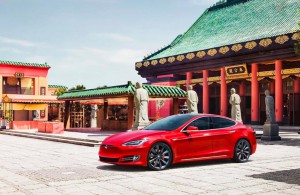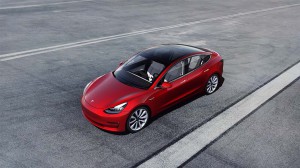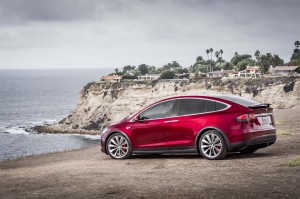
Just after Tesla raised prices on a few of its vehicles, China exempted all of its line-up from the 10% purchase tax.
China must be serious about selling more new energy vehicles, or NEVs, as shortly after Tesla Inc. revealed a series of price increases, government officials announced it would be exempting the automaker from purchase tax.
Tesla raised prices on some of its vehicles to offset the impact of China’s weakening yuan, which was at its lowest level in more than decade. The Model X jumped to 809,900 yuan, or $114,186, from 790,900 yuan, or $110,629.
The price of the long-range dual-motor variants of the Model 3 cars rose 10,000 yuan, or just under $1,500. The Model 3 is now 439,900 yuan, or $61,532, up from 429,900 yuan, or $60,133.
(China Moving to Offset Impact of Trump Tariffs and Jump Start Auto Sales)
Adjusting the prices of its vehicles in China isn’t always news for Tesla, as it’s done so several times during the last 12 months, but this set of price increases comes during tense times between the U.S. and China.
The two sides are in the midst of a tariff war and the move by China to allow its currency to weaken caused the U.S. Treasury to label China as a currency manipulator. It’s a label China’s government has strongly disputed.
However, nearly as quickly as new hit about the price increases, the Ministry of Industry and Information Technology announced the EV maker’s exemption from the purchase tax.
China currently levies a 10% purchase tax on the sale of each vehicle. The move could reduce the cost of buying a Tesla car by up to 99,000 yuan, or $13,957.82, Tesla posted on its social media WeChat account, according to Reuters.
(VW Denies Seeking Stake in Tesla)
The cut is for all of the Tesla models sold in the country. No reason was given for the decision to exclude the cars from the tax. Tesla’s stock is up 7.35% in early trading on the news of the move by Beijing. Instead of a few of its vehicles being more expensive, all of Tesla’s vehicles are now significantly cheaper.
Again, no official word was given for the move, but China recently implemented a set of mandates aimed at rejuvenating its economy, especially the automotive industry, which was been down for this year. However, even during the downtimes, NEVs have seen an uptick in sales, especially in the last few months.

Tesla is believed to have sold more than 17K Model 3 sedans during the first seven months of this year.
The break on taxes for Tesla only helps the California-based electric vehicle maker sell more vehicles there while it scurries to get its production facility near Shanghai complete. LMC Automotive estimates it sold 23,678 vehicles in China in the first seven months this year, including 17,451 Model 3 cars.
Tesla’s been pointing to the completion of the Shanghai factory, which is expected to produce about 3,000 Model 3s weekly during its ramp up phase, as a way for it to improve its profitability as well as overall sales numbers.
(Former NYSE Chief Warns of “False and Misleading Claims” from Tesla)
The Model 3 sedans built there will be sold in China. When at full capacity, the plant is slated to have annual capacity of 250,000 vehicles, which includes production of the Model Y.

